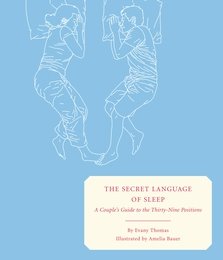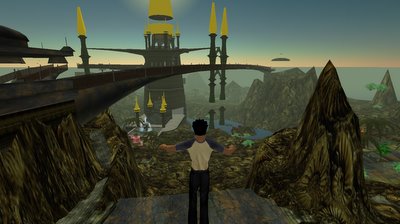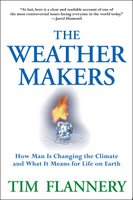I read some good books last year, but these four were marvelous. All have expanded and clarified how I see the world and approach my work on a daily basis. Shared in the hopes that you might enjoy them as well:
Nudge, Richard H. Thaler and Cass R. Sunstein
Team of Rivals, Doris Kearns Goodwin
Little Brother, Cory Doctorow
The Art of Learning, Josh Waitzkin
Showing posts with label books. Show all posts
Showing posts with label books. Show all posts
Monday, January 05, 2009
Sunday, January 13, 2008
The culting of brands
 I blogged recently about wanting to write a book comparing cults, built-to-last corporate cultures, and wildly successful consumer brands. As I secretly hoped, someone has already written such a book, and it's phenomenal.
I blogged recently about wanting to write a book comparing cults, built-to-last corporate cultures, and wildly successful consumer brands. As I secretly hoped, someone has already written such a book, and it's phenomenal.If Jim Collins described the optimum corporate culture for the late 20th century, then Douglas Atkin in "The Culting of Brands" has intuited the human relationship model behind the most powerful business innovations, and grassroots social, technological, and religious movements of the new century.
Wednesday, June 20, 2007
Cycles of culture
In his recent SALT talk, Steven Johnson plugged the book Graphs, Maps, Trees by Franco Moretti. I just finished it, and it's hands-down one of the best analyses of literary history I've ever read.
Moretti practices what he calls "distant reading," looking at the full literary output of a society over time. His models—the graphs, maps, and trees of the title—bring some hidden cycles of human culture into sharp relief. He also offers some tentative, but compelling hypotheses regarding how and why new artistic forms arise, evolve, and decay.
P.S. Anyone interested in an engaging debate about cycles of artistic form should also check out the discussion of music—and specifically, David Levitin's book "This Is Your Brain on Music"—taking place in the North American Future Salon Yahoo! group. Look for the subject header "Accelerating Change."
Moretti practices what he calls "distant reading," looking at the full literary output of a society over time. His models—the graphs, maps, and trees of the title—bring some hidden cycles of human culture into sharp relief. He also offers some tentative, but compelling hypotheses regarding how and why new artistic forms arise, evolve, and decay.
P.S. Anyone interested in an engaging debate about cycles of artistic form should also check out the discussion of music—and specifically, David Levitin's book "This Is Your Brain on Music"—taking place in the North American Future Salon Yahoo! group. Look for the subject header "Accelerating Change."
Thursday, December 28, 2006
Business writing with a kick
 Early on Christmas morning, I finished reading The Coffee Book: Anatomy of an Indusry from Crop to the Last Drop from New Press. The two authors—Nina Luttinger and Gregory Dicum, fellow San Franciscans—are superb storytellers. Every chapter is a joy to read, with insightful and lucid descriptions of the history of third places, the effects of globalization on the developing world, and the promise and potential snarls of the sustainable food movement.
Early on Christmas morning, I finished reading The Coffee Book: Anatomy of an Indusry from Crop to the Last Drop from New Press. The two authors—Nina Luttinger and Gregory Dicum, fellow San Franciscans—are superb storytellers. Every chapter is a joy to read, with insightful and lucid descriptions of the history of third places, the effects of globalization on the developing world, and the promise and potential snarls of the sustainable food movement.
Friday, November 03, 2006
Digital utopians
I saw Fred Turner (author of From Counterculture to Cyberculture: Stewart Brand, the Whole Earth Catalog, and Rise of Digital Utopianism) give an interesting talk earlier this week. Next Thursday 11/9, he'll be joining Brand, Kevin Kelly, and Howard Rheingold for a panel discussion at Stanford. Anyone wanna go?
Saturday, October 21, 2006
39 Positions
 Also this week, I heard Evany Thomas read from her new book The Secret Language of Sleep: A Couple's Guide to the Thirty-Nine Positions.
Also this week, I heard Evany Thomas read from her new book The Secret Language of Sleep: A Couple's Guide to the Thirty-Nine Positions. I haven't read the book yet, but if it's half as funny as Evany was in person, it will make a primo holiday gift, either for yourself or someone special. My favorite position name so far is "¡Dormimos!" (We sleep!).
I'm not sure yet what to make of the observation that "The Cliffhanger" is the favored position of consultants...
Thursday, September 21, 2006
Shutting out the Sun
I attended a great talk this evening with Michael Zielenziger, author of the new book "Shutting out the Sun: How Japan Created Its Own Lost Generation." His summary of Japan's economic and social collapse over the past fifteen years is chilling and deeply insightful. The book uses the phenomenon of hikikomori—young Japanese men who lock themselves in their apartments for years at a time—as a prism for looking at all of Japanese culture.
Sunday, September 10, 2006
Back in action

I just got back from two busy weeks on the East Coast, and I'm hopelessly behind on sharing great links, or what's on my mind generally. But here's some quick catch-up.
I love the fall, with all its excitement, possibility, warmth, stress, growth.
Tuesday, August 15, 2006
From Dawn to Decadence
From Jacques Barzun, a rich, highly readable history of Western civilization, from the Renaissance to the present.
Sunday, July 23, 2006
Things to be happy about: A Suitable Boy
 A deeply satisfying novel from Vikram Seth set in mid twentieth-century India.
A deeply satisfying novel from Vikram Seth set in mid twentieth-century India.
Too darn hot
 Yesterday, the temperature in my neighborhood in San Francisco reached 95 degrees. (Our typical weather this time of year is high-60s.) I'd be happier about putting on flip-flops and heading for the beach today if I didn't know that the hot weather here and across the world this summer is clearly due to global warming.
Yesterday, the temperature in my neighborhood in San Francisco reached 95 degrees. (Our typical weather this time of year is high-60s.) I'd be happier about putting on flip-flops and heading for the beach today if I didn't know that the hot weather here and across the world this summer is clearly due to global warming.For anyone looking to get up to speed quickly on climate change, I strongly recommend Tim Flannery's recent book The Weather Makers. Flannery goes broader and deeper than the recent Al Gore movie—with more detail on the hard science, as well as potential solutions. Frightening, but essential reading.
Subscribe to:
Posts (Atom)
